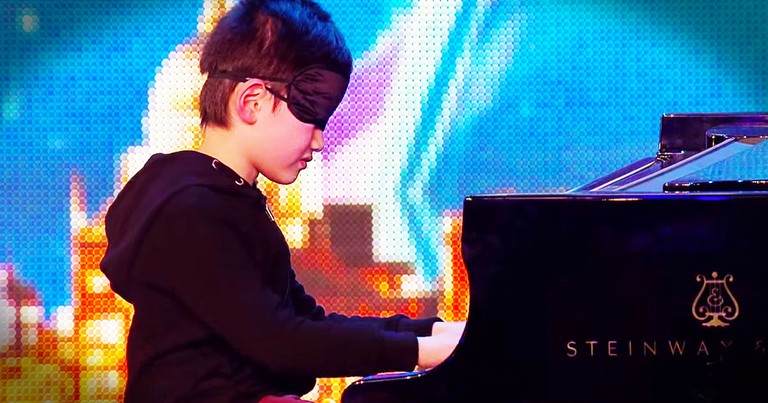
- #Child piano prodigy matthew sumthin movie#
- #Child piano prodigy matthew sumthin tv#
- #Child piano prodigy matthew sumthin free#
47: Duke Pearson (1932-1980)īorn Columbus Calvin Pearson in Atlanta, Georgia, Pearson’s career took off when he moved to New York City in 1959.
#Child piano prodigy matthew sumthin movie#
Grusin went on to become a prolific composer of movie scores (among them On Golden Pond and The Fabulous Baker Boys) and has also released a raft of keyboard-oriented studio albums.
#Child piano prodigy matthew sumthin tv#
Originally from Colorado, Grusin began releasing piano-led albums under his own name in the early 60s, a decade that also saw him break into the world of television music, where he wrote themes for numerous US TV shows. 48: Dave Grusin (born 1934)Ī founding father of an accessible, R&B-inflected form of instrumental music called smooth jazz, Grusin is rare among the best jazz pianists for having also set up his own record label, GRP, in 1978. His own discography contains just one solo album, 1991’s Kenny Kirkland, for GRP, though it’s likely that, had he not died prematurely, aged 43, from congestive heart failure, Kirkland would have recorded many more solo albums. Kirkland also played with jazz greats, trumpeter Dizzy Gillespie and drummer Elvin Jones, in the 80s, and appeared on five albums by ex- Police frontman, Sting. Tristano was also a noted jazz teacher and it is claimed that his influence affected Miles Davis (on Birth Of The Cool) as well as Dave Brubeck and Gerry Mulligan.Ĭlick to load video 49: Kenny Kirkland (1954-1998)įrom Brooklyn, New York, Kirkland had a fruitful association with the Marsalis brothers, Wynton and Branford, in the 80s and 90s, appearing as a sideman on many of their albums. He also experimented with multi-tracking recording in the early 50s – which most jazz musicians considered anathema – by overdubbing improvised piano parts.
#Child piano prodigy matthew sumthin free#
What is certain is that Tristano was an uncompromising innovator whose unorthodox conception of melody and harmony presaged the birth of free jazz. Opinions differ on the significance of this blind, Chicago-born pianist who played with Charlie Parker in the late 40s and went on to establish himself as a musician with a unique sound and style. In our estimation, here are the 50 best jazz pianists of all time. Indeed, whittling it down was not an easy task, but we’ve persevered and come up with a list of names that we believe represent the most important ivory-ticklers of the genre. The jazz world has produced an abundance of super-talented piano players – many more than can be accommodated in this list of the 50 best jazz pianists of all time. Evans’ influence – like Bud Powell’s before him – was pervasive, and many future jazz piano stars (from Herbie Hancock and Chick Corea to Keith Jarrett and, more recently, Brad Mehldau) are indebted to him. When the 50s arrived, there were others, such as Bill Evans, who fused the bop aesthetic with a sensibility nurtured on classical and romantic music, producing a densely-harmonized piano style that was supremely lyrical and richly expressive.

In the mid-40s, the bebop revolution, instigated by horn players Charlie Parker and Dizzy Gillespie, resulted in a generation of artists (led by Bud Powell) who would enter the ranks of the best jazz pianists with an approach that treated the instrument like a trumpet or saxophone, picking out syncopated right-hand melodies with horn-style phrasing. Hands down one of the best jazz pianists in history, Tatum was a blind genius who arguably created the most densely polyphonic and sophisticated pre-bebop piano style of all, fusing stride with swing.


From ragtime piano came the more sophisticated and virtuosic “stride” style of James P Johnson and Willie “The Lion” Smith – with its locomotive, two-step, left-hand accompaniment – in the 20s and 30s, which in turn led to Fats Waller and ultimately culminated with Art Tatum.


 0 kommentar(er)
0 kommentar(er)
